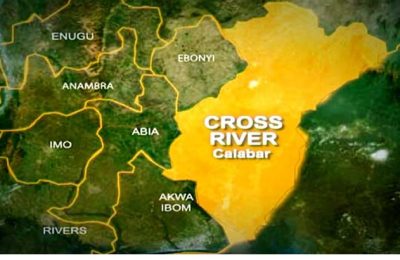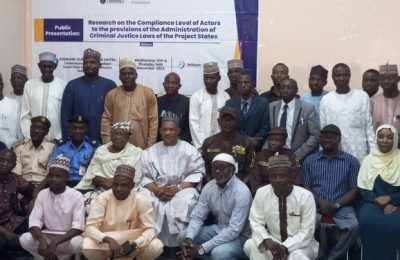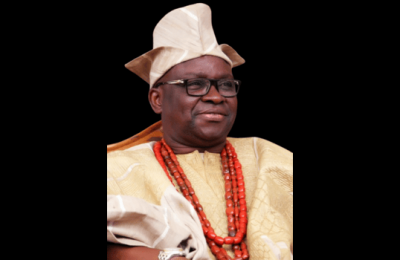Oluwanifemi-Brown Akerele, the project lead at Nifemi Brown Foundation, a nonprofit organization, known for taking bold actions for access to lifelong learning opportunities, one school at a time especially at less privileged communities. She is an advocate for women’s rights with a vision for educational reform in Nigeria. In this interview with YEJIDE GBENGA-OGUNDARE, she speaks on education reform in line with SDGs, challenges in Nigerian educational sector and collaboration among agencies.
What is your vision for education reform in Nigeria and how does it align with the Sustainable Development Goals (SDGs)?
Our organisational vision is driven by a commitment to enhancing the quality of life for individuals and communities worldwide. We recognise that access to quality education is a fundamental right and a catalyst for personal growth, community development, and societal progress. Through our work, we aim to bridge the educational gap prevalent in low-income communities, understanding the profound impact it has on individuals’ health, lifestyle choices, financial stability, and decision-making abilities. To address these challenges comprehensively, we have aligned our efforts with two key targets of Sustainable Development Goal 4: Target 4.8, which focuses on building and upgrading inclusive and safe schools, and Target 4.3, which emphasises equal access to affordable technical, vocational, and higher education.

Our strategy involves refurbishing dilapidated schools in low-income areas, ensuring that the facilities are conducive to learning for all students, regardless of gender, disability, or socio-economic background. By creating safe, non-violent, and inclusive learning environments, we aim to nurture the holistic development of every child and empower them to reach their full potential.
Moreover, we are committed to supporting financially challenged students in higher education institutions, enabling them to pursue their academic aspirations without the burden of escalating costs. By alleviating financial barriers, we ensure that all individuals can access quality education and contribute meaningfully to society. Also, we recognise that the safety and inclusivity of learning environments are paramount, especially for early childhood education. Hence, our focus extends beyond academic excellence to encompass the overall well-being and growth of learners. While adult learners may persevere through environmental challenges, we understand the critical role of providing conducive settings that facilitate focused and effective learning experiences.
In essence, our approach is rooted in a deep understanding of the interconnectedness between education, individual well-being, and community advancement. By prioritizing inclusive and safe learning environments, we strive to unlock the potential of every learner and catalyze positive transformations within communities, paving the way for a brighter and more equitable future for all.

What specific challenges do you see in the Nigerian education system, and how do you plan to address them?
Identifying specific challenges within our educational system can be complex and it is clear that no single non-profit organisation can tackle them all alone. To avoid listing innumerable challenges, at the core, there needs to be an urgent review and reform our educational policies comprehensively. Central to this reform, we must address the widespread mass failures in our national exams. This calls for innovative approaches that can be swiftly implemented to address these systemic issues.
Equally critical is the revision of our curricula to ensure they are responsive to both local contexts and global demands. In this regard, it is essential to integrate comprehensive history lessons across all levels of education, fostering a deeper understanding of our collective heritage and shaping informed global citizens.
Furthermore, the well-being and professional development of our teachers and administrators are paramount. Adequate financial compensation, along with access to continuous training and resources for improvement is essential components of a thriving educational ecosystem.
In essence, by undertaking these fundamental reforms in educational policy, we can lay the groundwork for a more equitable, inclusive, and effective education system that empowers learners to succeed in an ever-changing world.
How do you plan to collaborate with government agencies, local communities and other NGOs to advance education reform initiatives?
Collaboration has been key to our achievements over the years, especially working with individuals, small businesses, and other organisations. We are committed to expanding these collaborations to include communities, agencies, and organisations, and we warmly welcome partnerships that align with our mission to reach more students and schools.
However, working with local government agencies has been particularly challenging. Help isn’t always as forthcoming as we hoped from these agencies, due to bureaucracies. Despite this, we’re continually learning and refining our approach to meet the requirements of these agencies. Our goal is to reach the most important people: our future leaders.
How do you plan to measure the impact of your education reform efforts in Nigeria?
Our approach is simple; we tackle each project one student, one school, and one community at a time. This method allows us to focus entirely on each project within a specific timeframe.
We believe in staying connected with the students we support through scholarships and mentorship. This ongoing engagement ensures they receive continuous monitoring and support beyond financial assistance. As we continue to expand our reach throughout the year, we’ll also expand our capacity to fulfill our responsibilities. However, measuring the impact of educational reforms in Nigeria requires looking at policies and broader metrics, which isn’t within our scope now.
Read the rest on www.tribuneonlineng.com
How will you ensure that your education programs are culturally sensitive and relevant to the diverse communities within Nigeria?
Our approach, particularly in relation to Target 4.8, which emphasizes building and upgrading inclusive and safe schools, is designed to be replicable across diverse communities regardless of language or socio-economic status. This model can be successfully implemented anywhere in Nigeria, Africa, and beyond. Our success stems from the initial step of deeply engaging with communities and conducting thorough assessments. This process allows us to understand and adapt to the unique cultural needs of each community.
Over the past eight years, we have achieved significant success in our interactions with rural communities in Lagos and Ogun states. This track record underscores the effectiveness and scalability of our model in improving educational infrastructure and creating safe learning environments.
How do you plan to secure sustainable funding for your education initiatives in the long term?
We persist in our efforts with the support of our current partners, believing that consistent work and tangible results will have a ripple effect. Securing funding for a non-profit focused on SDG 4 is undeniably challenging for several reasons. Firstly, many donors lack the patience to wait months or years to see the impact of their contributions on students. Additionally, some individuals argue that such initiatives are the government’s responsibility or raise other valid concerns. Despite these obstacles, we have remained steadfast over the past eight years and are committed to continuing our mission.
What strategies do you have in place to ensure that teachers are adequately trained and supported to deliver quality education?
While our primary mission does not include addressing teachers’ concern, we occasionally undertake initiatives to ensure that teachers have a conducive teaching environment. This includes providing or repairing structures and facilities to alleviate the burden of their daily tasks. As mentioned earlier, the significant change we aspire to see must begin within the corridors of the Ministry of Education. It is there that policies are crafted, and proper considerations are made for the improvement of our education system.
Can you share a specific success story or example of the impact your organization has had on education in Nigeria so far?
Since our establishment in 2015, we’ve made significant strides in improving education infrastructure and resources in Lagos and Ogun states. We’ve renovated over five poorly structured primary school buildings and addressed the lack of toilet facilities in some schools. In Ogun state, we’ve constructed a library and stocked it with books to enhance learning opportunities for students. Additionally, we have distributed over 5,000 packs of exercise books, school uniforms, and other essential learning materials to pupils across these schools, ensuring they have the tools they need to succeed.
In 2023, we launched our Undergraduate Scholarship Program, which has already made a difference in the lives of two deserving students; one at the University of Lagos and the other at the University of Ibadan. These students receive annual scholarship awards totaling three hundred thousand naira each, providing them with vital financial support to pursue their higher education aspirations.
ALSO READ: [VIDEO]: Let church members attend Redeemer’s schools for free, Lege urges Adeboye







